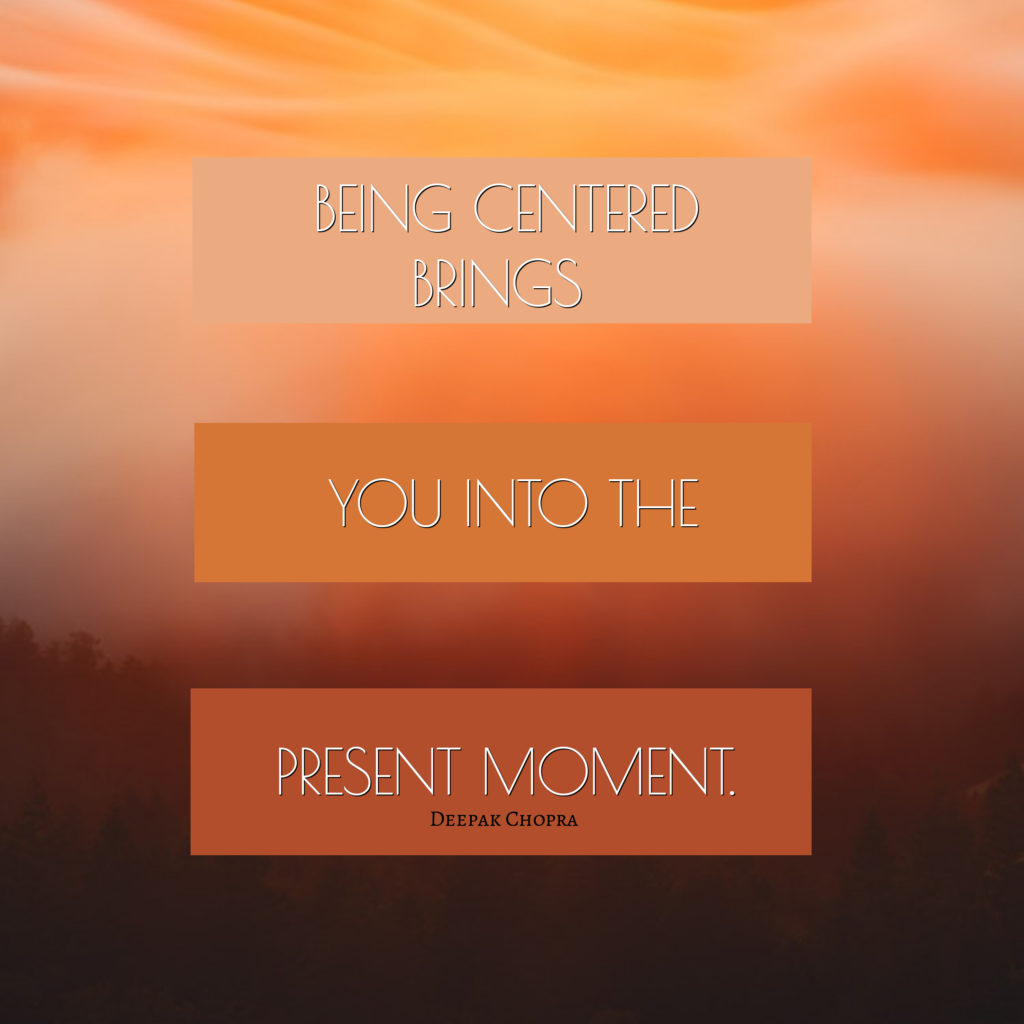
By Deepak Chopra, MD
The complex issue of consciousness may seem abstract, but in daily life the the simple rule is, the more aware you are, the better. Awareness comes naturally, yet some people are more skilled at using their awareness than others. They have acquired certain skills, which in fact anyone can learn–and should.
This is the second in a series of articles about skills in awareness–the first was on how to remain centered. Being centered. Being centered brings you into the present moment. Having mastered this skill, you are not easily distracted, flustered, or thrown off balance. The next skill has to do with focus, sometimes called one-pointed awareness.
Whenever you really want something, keeping focused on it comes naturally. But does awareness have its own power to bring about results? In other words, leaving aside the work needed to create an accomplishment, can you find a quicker, easier path by being more conscious? To find out, you must use a special kind of focus, known as “clear intention.”
Knowing what you want, uncomplicated by confusion, is a clear intention. Your body obeys clear intentions more easily than confused intentions. Every time you hesitate or feel mixed emotions, your intention is no longer clear. It’s the difference between running a marathon intent on winning and running the same marathon worrying that you might collapse halfway through. The brain is thrown off by mixed messages, even when they are subtle. For example, if you know how to make an omelet, it will generally take less than two minutes from start to finish. But try timing yourself against the clock, setting a deadline of two minutes. You’ll find yourself fumbling over easy steps, and at the very least your mind will be divided between making the omelet and keeping your eye on the clock.
The problem of mixed motives leads to much frustration. Think of how hard it has been to make decisions in your own life when you felt ambivalent, indecisive, or unsupported in your decision-making. These factors affect not just you but the entire situation. Worse still are decisions that must be made where there is distrust, rivalry, and hidden agendas. A group of people with mixed motives isn’t conducive to reaching any goal smoothly, and when a bad result occurs and outsiders ask, “What were they thinking/” the answer is usually “They were thinking too many things at once.”
Focused intention has long been given inexplicable power. Consider the act of prayer. People pray under many different circumstances, some of them quite desperate, when the mind is agitated, some of them quite peaceful, when the mind calmly turns to God. There are prayers for success, rescue, redemption, forgiveness, healing, or if you happen to be ten years old, for a new bike. People make bargains in their prayers: “God, if you give me what I want, I promise to be good” is a well-tried formula. The fact that some prayers are answered while many go ignored leads to enormous confusion and frustration. But in terms of awareness, prayer can’t be expected to work if your intention isn’t clear. In every area of life, intentions become murky when you:
- Don’t really know what you want
- Think you don’t deserve to get what you want
- Feel skeptical that any result will come
- Have mixed motives
- Experience inner conflict
Prayer is a controversial subject, and I’m not passing judgment on whether it works or not (given a clear connection to your true self, I personally believe that prayer – or any clear intention – can be effective). But the lines of communication are cut off when you send a confused message. With clarity comes focus, and when you are focused, the power of awareness is activated.
The secret to holding focus is to make it effortless. The image of a genius with furrowed brow concentrating like mad is the wrong image. Awareness likes to be focused when it is pleased – that’s why two people in love can’t tear their eyes off each other. They drink each other in; there’s no effort involved. So apply your focus to the things that charm you. Put your energy on things you love but also on things that most easily hold your attention and make you feel energized and vital. That kind of focus is effortless but not passive. It involves the following:
- You relax into a receptive state.
- You are quiet inside.
- The experience is allowed to sink in.
- You are filled with a subtle feeling of curiosity, pleasure, wonder, or love.
- You appreciate this feeling and allow it to linger.
In short, this is one of the gentlest skills in awareness, and one of the most enjoyable.
Deepak Chopra MD, FACP, founder of The Chopra Foundation and co-founder of The Chopra Center for Wellbeing, is a world-renowned pioneer in integrative medicine and personal transformation, and is Board Certified in Internal Medicine, Endocrinology and Metabolism. He is a Fellow of the American College of Physicians and a member of the American Association of Clinical Endocrinologists. Chopra is the author of more than 85 books translated into over 43 languages, including numerous New York Times bestsellers. His latest books are The Healing Self co-authored with Rudy Tanzi, Ph.D. and Quantum Healing (Revised and Updated): Exploring the Frontiers of Mind/Body Medicine. www.deepakchopra.com
